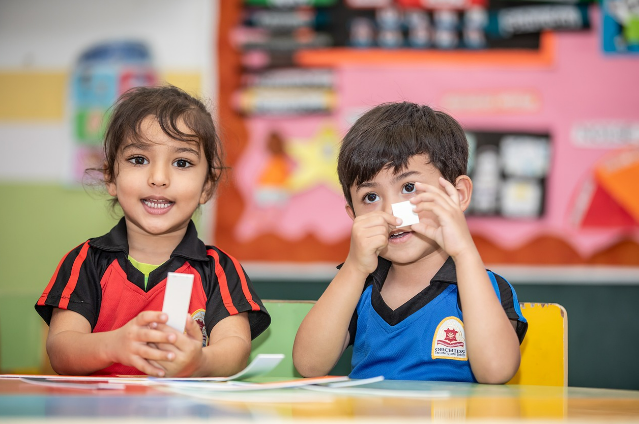
Image by Anil sharma from Pixabay
Introduction:
ECCE means Early Childhood Care and Education. It is an educational system for children in the age group from three years to six years where this three years education process is completed in pre-primary school. Early childhood education is an education system for children aged three to six years. This system is applicable to the acquisition of knowledge in primary school and usually ends in Anganwadi, Pre-School, or Bal Vatika.
Early Childhood Education: Foundations of Education:
Early childhood is actually the foundation of a child's overall development. From 3 to 6 years, early children love to listen to stories, play, dance, listen to songs, draw pictures, and communicate with their peers and parents. Early childhood is the perfect time for the development of the intellectual, physical, emotional, spiritual, mental, and spiritual abilities of the child. When a child's foundation is strong, he can develop and acquire the ability to handle the next stage of academic progress.
Importance of early childhood education:
It is important to provide early childhood education care, adopt different strategies for the overall development of the child, and create opportunities from various aspects in education to improve the foundation of the child. Various approaches can be taken to realize the importance of ECCE.
Ways of early childhood education and care:
Healthy mental development:
ECCE ensures healthy brain development and growth of the child. A child multitasks through various activities. For this, the system of the following techniques is essential.
In terms of concentration:
Following are the ways to increase the concentration quality of the child.
- Coloring the picture
- Making garlands and garlands.
- putting things in shape
- Choosing mixed seeds to give
- Listen to the story
- Pour water from one bottle to another
In terms of balance:
- sit still
- to be determined
- Listening to music
- to play
In terms of Emotionally:
- Sharing food
- Help in times of trouble
- Listening to emotional stories
- Expressing grief over sad events
- Watering during the dry season
- To change the mind in national songs
Child participation:
A child has the capacity to participate in various fields. It also ensures ECCE. Children will participate in the following areas.
Participation in the field of drawing:
- Chalk drawing on the floor
- Drawing with wood in sand
- Pencil drawing on paper
- Color work in pictures
- Participation in Literature:
- Telling stories
- to speak
- Saying the name of the great man
- To mention the names of one's family and of one's ex-husband
Participation in Sports:
- Participation in team sports
- Participating in sit-down games
- Participation in games within the community
Personal development and behavior of the child:
ECCE helps to improve the child's social qualities, sensitivity, good behavior, courtesy ethics, personal and public cleanliness, teamwork and cooperation, etc. in managed schools. Improvement of the child in the above areas is accompanied by improvement in his lower abilities.
- To judge
- Feeling the emotion
- Bring concentration
- Conscience
- Awakening love
- The creation of compassion
- Adopting the virtue of forgiveness
- To feel joy
- To exercise restraint
- Learning logic
- Learn to be diligent
- Imagine
- The path of nonviolence
- Telling the truth etc
Observance of the child's virtues and virtues:
- Respect and Salutations to elders
- Do your own thing
- Called to command
- To answer a question
- Don't throw food away
- Turn off the light and fan when going outside
- Sit and drink water
- Helping the young and old
- Keeping shoes organized
- Dispose of waste in designated areas
- Use water as needed
ECCE improves the child's following:
- Development of physical
- Motor Development
- Cognitive Development
- Socio-emotional ethical domain
- Culture
- Art
- Communication
- Language
- Literacy and Numeracy
The technique of physical development of the child can be considered as follows:
Physical development of the child is absolutely necessary. From that point of view, the application of some techniques can be as follows.
Walking Technique:
- Walk slowly
- Walk briskly
- Walk in circles
- Walk with your hands behind your back
- Walking on a number line
- Running skills
- Running in the field
- Running in circles
- Running backward
- Obstacle course
Catching Technique:
- Grab the water bucket
- Catching the ball from a distance
- Jump and hang
- Grab a water bottle
- Throwing technique:
- Throw away
- Toss the ring ball
Jumping Technique:
- Sack Pindi jump
- Jump over the horizon
- Jump in the sand
Balance Techniques:
- Walk the line
- Walk on the edge of the brick
- Walking with the flag in hand
- Walking with a glass of water in hand
ECCE learning process includes the following types for children:
- Alphabet
- Language
- Number
- Count
- Color-work
- Shape
- Outdoor and indoor play
- Drawing
- Music
- Poetry
- Drama
- Movement
- Craft
Language learning in ECCE improves the child's lower skills, such as:
- Answer in complete sentences
- Pure speaking
- Hold a picture and talk about it
- Telling stories
- Holding an object and talking about it
- Saying the words heard in order
- Tell the story in order
- Expressing one's feelings
- Remembering orthodox Dhaag Dhamali and Dhanda
- Talking about your friend
Conclusion:
Based on the above points, ECCE if implemented in the center would help in the overall development of the child. They are the future light of our nation. ECCE is the grassroots system and foundation. The children in this age group are as seed. They enrooted and became the huge trees in which a group of people rested and get oxygen well. This tree will help the nation and society.
